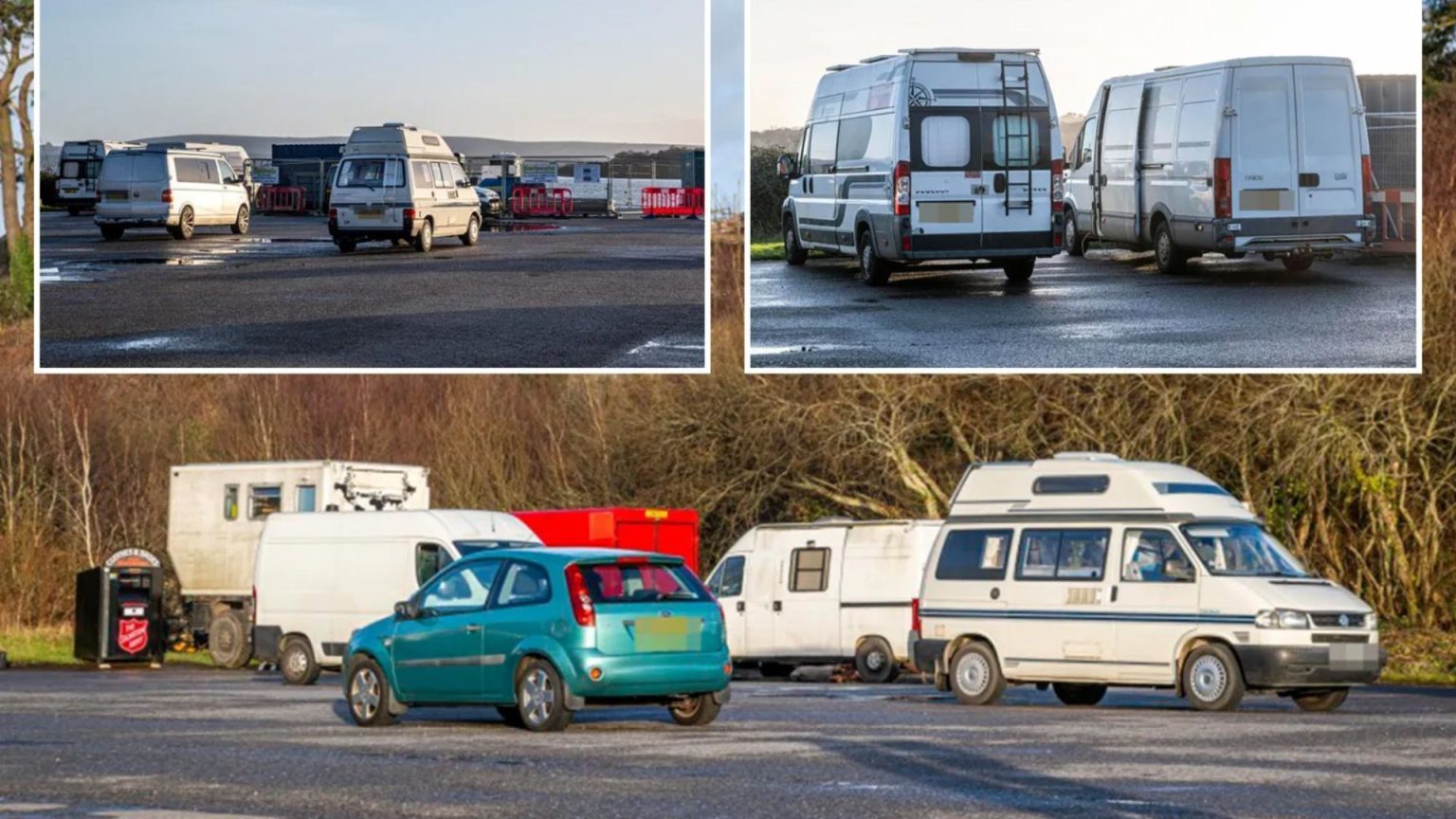The picturesque Lake Pier in Hamworthy, Dorset, has become the center of a heated dispute between local residents and van dwellers. The idyllic spot, with its stunning views of Poole Harbour, offers free parking from November to mid-March, including overnight, attracting a growing number of individuals opting for van life. While some van dwellers insist they maintain the area’s cleanliness and respect the local community, residents complain about accumulating litter, unleashed dogs, oil spills, and the overall degradation of the beauty spot. The contrasting perspectives fuel a debate about the rights of individuals to choose their lifestyle versus the responsibility to maintain public spaces and address residents’ concerns.
The free overnight parking has unintentionally created a permanent campsite for approximately a dozen vans, exacerbating tensions between the two groups. Residents argue that the presence of the vans has transformed Lake Pier into an eyesore, impacting their enjoyment of the area. They describe finding the site littered and unpleasant, a stark contrast to its previous pristine condition. Some residents, frustrated by the perceived inaction of local authorities, have taken matters into their own hands, organizing community litter picks to restore the area’s appeal. They propose implementing overnight parking fees as a deterrent, hoping to reclaim the space for its intended purpose.
Conversely, van dwellers, like Pete Brooks, argue that they coexist peacefully with most locals and strive to maintain the site’s cleanliness. They acknowledge a temporary increase in van numbers due to friends replacing broken-down vehicles, assuring that the situation is unusual and will soon return to normal. Their perspective highlights the growing popularity of van life, particularly during the current cost of living crisis, as an affordable and flexible housing alternative. This perspective introduces the broader issue of housing affordability and the limited options available to individuals facing economic hardship.
The debate extends beyond Lake Pier, reflecting a nationwide discussion about the rights and responsibilities of van dwellers. Local Labour Councillor Peter Cooper emphasizes the right of individuals to choose their lifestyle, further highlighting that the lack of affordable housing forces many into van dwelling. This argument reframes the issue not as a conflict between residents and van dwellers, but as a symptom of a larger societal problem – the housing crisis. It underscores the need for more affordable housing options and solutions that accommodate diverse living arrangements.
BCP Council, the local authority, acknowledges the situation at Lake Pier but states that there are no reported instances of anti-social behavior directly linked to the van dwellers. They confirm regular monitoring of the site by parking wardens and the issuance of penalties for parking violations. While recognizing residents’ concerns, the council’s statement emphasizes the lack of evidence linking van dwellers to criminal activity, underlining the importance of verified reports rather than assumptions. Kieron Wilson, BCP Council cabinet member for housing and regulatory services, reiterates this point, urging residents to formally report any instances of anti-social behavior.
Looking ahead, BCP Council is exploring a community pact for the entire BCP seafront. This initiative aims to designate safe parking areas for van dwellers, providing access to basic amenities. This approach seeks a compromise, balancing the needs and rights of both residents and van dwellers. It acknowledges the increasing prevalence of van life and the need for designated spaces that accommodate this lifestyle while mitigating potential conflicts with local communities. The success of this initiative will depend on community engagement and a willingness to find common ground. The discussion on social media further exhibits the divided opinions on the matter, with some suggesting stricter enforcement of no overnight camping rules, while others emphasize the economic realities driving van life and call for better provision for van dwellers, including designated facilities for waste disposal. This ongoing dialogue reflects the evolving understanding of housing needs and the search for sustainable solutions that address the diverse living choices within the community.


